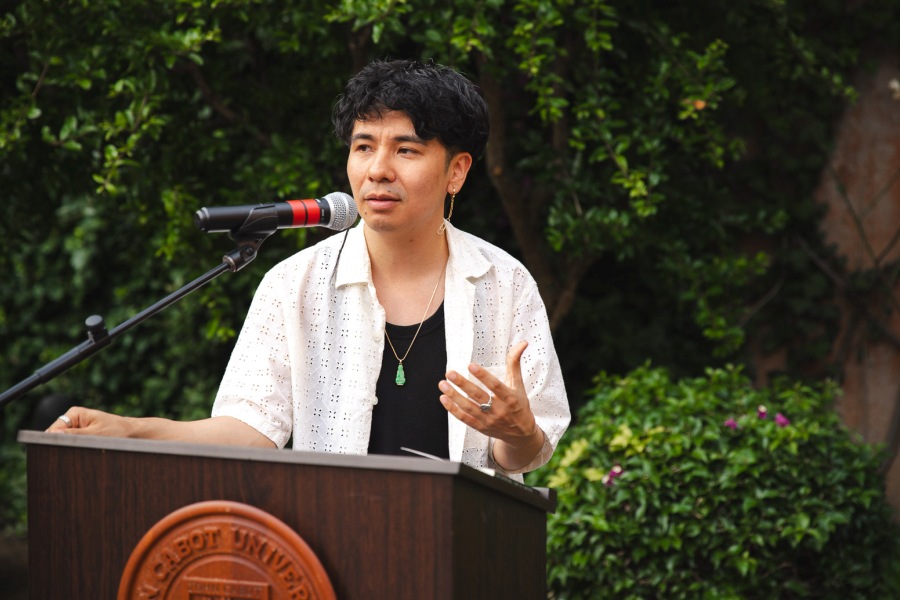Fighting Colonialism: JCU Screens Pravini Baboeram's The Uprising
On October 28, 2019, John Cabot University’s Department of Communications organized a screening of The Uprising (2019), a music documentary that tells the story of resistance against racism in postcolonial Europe, through the eyes of people of color. The screening was followed by a discussion with director Pravini Baboeram, a Dutch-Indian artist and activist.
Baboeram interviewed thirteen academics and activists from the Netherlands, France, the United States, and the United Kingdom about racism and resistance. The documentary is composed of 9 chapters, which discuss, among other things, the history and the narrative of racism through a decolonial perspective. The director and the interviewees analyzed the history and legacy of colonialism and shared their vision for the future.
Jeffry Pondaag, a member of the Committee of Dutch Debts of Honour, discussed the colonial crimes that the Netherlands committed in Indonesia in the first half of the twentieth century, and demonstrated his commitment to holding the Dutch state accountable and bringing justice to the Indonesian people. Jessica de Abreu, member of the Stop Blackface movement in the Netherlands, explained the issue of Zwarte Piet, a racist figure of Dutch folklore who is depicted in blackface, and Chaima Demnate, a member of Students for Justice in Palestine talked about the fight for the liberation of Palestine.
The idea to make The Uprising started with music. Baboeram, who is also a singer/songwriter, usually writes about her experiences. When she was writing the songs for her music album, Baboeram realized that they were connected and that they were telling a bigger story. “The songs were accompanied with images in my head,” she said, explaining that she chose to interview the people who educated her on these issues. Each of the 9 chapters of the documentary is paired with a song from the album, whose lyrics also have an anti-racist message.
Among other things, the documentary showed what Baboeram called “the 5 lies of colonialism,” or the ways in which some people attempt to justify colonialism. The first lie concerns the terminology, which may be employed in such a way as to present colonialism in a less negative light. Selective facts are the second lie, because they promote certain aspects over others. The last three, namely narrative of lies, greater theory, and erasure of ethics, also attempt to push a specific view of colonialism.
Baboeram said that with this documentary she tried to bring a “decolonial perspective on current issues.” Her choice to focus on the current struggles of people of color in Europe came from the lack of films that deal with this topic and that address the continent’s relationship with its colonial past.
In the Q&A session, Baboeram asked the audience to tell her about how the documentary related to their experiences. A student said that she disagreed with a statement from activist Houria Bouteldja, in which she said that “it is necessary to love our enemies, for only love can drive out hate.” The student explained that she finds it difficult to forgive enemies and to love them, to which Baboeram replied that when it comes to forgiveness it is necessary to distinguish between people and power, because “individuals can be forgiven, but when power is institutionalized, you cannot forgive if there’s no acknowledgment, no reconciliation, no reparation,” said Baboeram.
“The screening was organized as part of the JCU Communications Department’s ongoing commitment to continue to present culturally relevant events and issues of social justice,” said Communications Professor Kwame Phillips.







